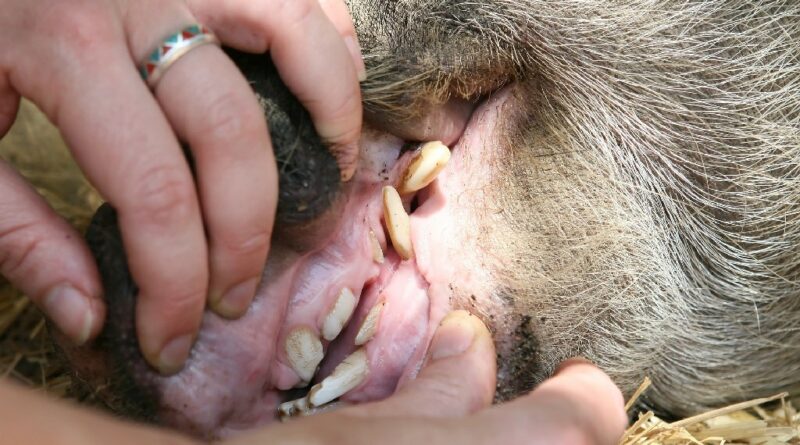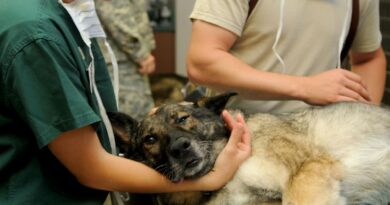Pet Health Issues and its prevention
As pet owners, it is our responsibility to ensure that our furry friends live healthy, happy lives. By being aware of common pet health issues and taking preventative measures, we can help our pets avoid many of these problems. In this article, we will discuss some of the most prevalent health concerns for pets, along with tips on how to prevent them.
Table of Contents
- 1. Obesity and Weight Management
- 2. Allergies
- 3. Oral Health
- 4. Joint Health
- 5. Skin and Coat Health
- 6. Heatstroke Prevention
- 7. Behavioral Health
- 8. Senior Pet Health
- 9. Routine Veterinary Care
- 10. At-Home Pet Care
1. Obesity and Weight Management
One of the most common health issues for pets is obesity. Excess weight gain in pets can occur due to various factors, such as lack of exercise, overfeeding, or underlying health conditions. Obesity can lead to numerous health problems, including diabetes, heart disease, and joint issues.
To prevent obesity in your pet, it is essential to implement a few strategies:
- Monitor your pet’s diet: Ensure that your pet is eating the appropriate amount of food based on their size, age, and activity level. Consult with a veterinarian to determine the right diet plan for your pet.
- Establish regular feeding times: Avoid free-feeding your pet, as this can lead to overeating. Instead, establish set meal times and measure out the appropriate serving size.
- Provide regular exercise: Engage your pet in daily physical activities like walking, playing, or running to help maintain a healthy weight.
- Routine veterinary check-ups: Regular visits to the vet can help identify any underlying health issues that may be contributing to your pet’s weight gain.
2. Allergies
Allergies are widespread in pets and can be triggered by various factors, including food, environmental allergens, and seasonal changes. Some common signs of allergies in pets include itching, skin rashes, and vomiting.
The following steps can help you prevent and manage allergies in your pet:
- Identify the allergen: Work with your veterinarian to identify the specific allergens causing your pet’s reactions. This may involve allergy testing or implementing an elimination diet.
- Avoid allergens: Once you have identified the allergens, take steps to reduce your pet’s exposure to these triggers.
- Provide proper nutrition: Ensure that your pet is receiving a balanced diet with the appropriate nutrients, as this can help support their immune system and reduce the severity of allergic reactions.
- Consult your veterinarian: If your pet is experiencing severe allergic reactions, your veterinarian may recommend medications or other treatments to help manage their symptoms.
3. Oral Health
Oral Health is one of the most common pet health issues, yet most of the owners do not understand its importance and often neglect in monitoring oral care. Taking care of your pet’s Oral health is a must to avoid serious health problems. To keep your pet’s teeth and gums in good condition, consider the following tips:
- Brush your pet’s teeth: Regularly brushing your pet’s teeth with pet-specific toothpaste can help remove plaque and prevent tartar buildup.
- Provide dental chews: Dental chews can help reduce plaque and tartar buildup on your pet’s teeth.
- Schedule routine dental check-ups: Regular dental check-ups with your veterinarian can help identify any potential issues early and ensure that your pet receives the necessary dental care.
4. Joint Health
Joint health is a common concern for pets, particularly as they age. Several factors can contribute to joint issues, including genetics, injuries, and obesity. To help maintain your pet’s joint health, consider implementing the following strategies:
- Maintain a healthy weight: As previously mentioned, obesity can put excessive strain on your pet’s joints. Ensuring that your pet maintains a healthy weight can help alleviate this pressure.
- Provide joint supplements: Supplements containing glucosamine and chondroitin can help support joint health and reduce inflammation. Consult with your veterinarian to determine if these supplements are appropriate for your pet.
- Encourage regular exercise: Low-impact exercises like swimming or walking can help maintain your pet’s joint mobility and overall health.
5. Skin and Coat Health
Various factors can contribute to skin and coat problems in pets, including allergies, infections, and poor nutrition. An unclean living environment can also exacerbate these issues.To keep your pet’s skin and coat in optimal condition, consider the following tips:
- Regular grooming: Brushing your pet regularly can help remove loose hair, dirt, and debris, promoting a healthy coat.
- Maintain a clean living environment: Ensure that your pet’s living space is clean and free of allergens that may cause skin irritation.
- Provide proper nutrition: A balanced diet rich in essential fatty acids can help support your pet’s skin and coat health.
6. Heatstroke Prevention
Heatstroke is a potentially life-threatening condition that can affect pets, particularly during the warmer months. Pets with flat faces, thick coats, or underlying health issues may be more susceptible to heatstroke.To protect your pet from heatstroke, consider the following tips:
- Provide access to shade and water: Ensure that your pet has access to cool, shaded areas and plenty of fresh water when outdoors.
- Avoid excessive exercise during hot weather: Limit your pet’s physical activity during the hottest part of the day, and opt for early morning or late evening exercise when temperatures are cooler.
- Utilize cooling devices: Products like cooling mats and elevated beds can help your pet stay cool during hot weather.
7. Behavioral Health
Behavioral problems, such as anxiety and stress, are common in pets. These issues can manifest in various ways, including destructive behaviors, excessive barking, or house soiling. To help address and prevent behavioral pet health issues, consider the following tips:
- Establish routines: Pets thrive on routine and consistency, so establishing a daily schedule for feeding, exercise, and sleep can help reduce stress and anxiety.
- Positive reinforcement training: Utilizing positive reinforcement techniques can help teach your pet appropriate behaviors and build a strong bond between you and your pet.
- Provide mental stimulation: Providing your pet with toys, puzzles, and interactive games can help keep their minds engaged and reduce boredom-related behaviors.
- Consult a professional: If your pet’s behavioral issues are severe or persistent, consider consulting a professional trainer or veterinary behaviorist for guidance.
8. Senior Pet Health
As pets age, they may experience a decline in their overall health and require additional care and attention. Senior pets are more prone to various health issues, such as arthritis, dental problems, and cognitive decline.
To ensure that your senior pet remains healthy and comfortable, consider the following tips:
- Schedule regular veterinary check-ups: Routine visits with your veterinarian can help identify any potential health issues early and ensure that your senior pet receives appropriate care.
- Adjust diet and exercise: Senior pets may require a different diet and exercise routine than their younger counterparts. Consult with your veterinarian to determine the appropriate adjustments for your pet’s age and health.
- Provide appropriate accommodations: Senior pets may require additional support, such as orthopedic beds, ramps, or modified living spaces, to ensure their comfort and well-being.
9. Routine Veterinary Care
Routine veterinary care is essential for maintaining your pet’s overall health and well-being. Regular check-ups can help identify any potential health issues early and provide preventative care to reduce the risk of future problems.
To ensure that your pet receives appropriate veterinary care, consider the following tips:
- Schedule regular wellness visits: Aim to schedule at least one wellness visit per year for your pet, or more frequently for senior pets or those with chronic health issues.
- Stay up-to-date on vaccinations: Ensure that your pet is current on all necessary vaccinations to protect them from preventable diseases.
- Discuss preventive care with your veterinarian: Consult with your veterinarian about appropriate preventive care measures, such as flea and tick prevention, heartworm prevention, and dental care.
10. At-Home Pet Care
While veterinary care is crucial, pet owners also play a significant role in maintaining their pet’s health and well-being. By providing appropriate at-home care, pet owners can help ensure the health and happiness of their furry friends.
To provide the best possible care for your pet at home, consider the following tips:
- Educate yourself: Learn about the specific needs and requirements of your pet’s breed and age to provide appropriate care.
- Monitor your pet’s health: Regularly observe your pet for any signs of illness or discomfort, and consult your veterinarian if you have any concerns.
- Maintain a clean living environment: Keep your pet’s living space clean and sanitary to reduce the risk of illness or infection.
By being proactive and implementing these strategies, pet owners can help prevent many common pet health issues and ensure their furry friends enjoy a long, healthy life. Remember always to consult with your veterinarian if you have any concerns about your pet’s health or well-being.









